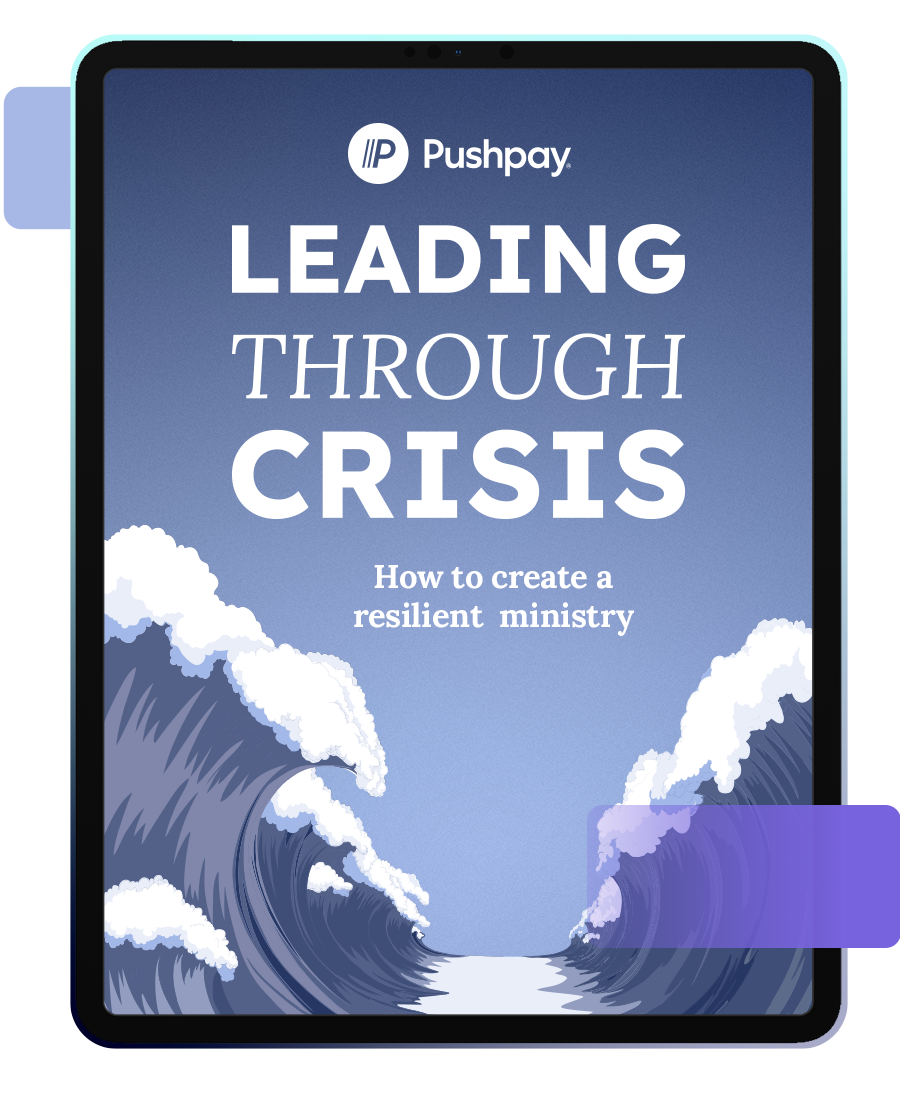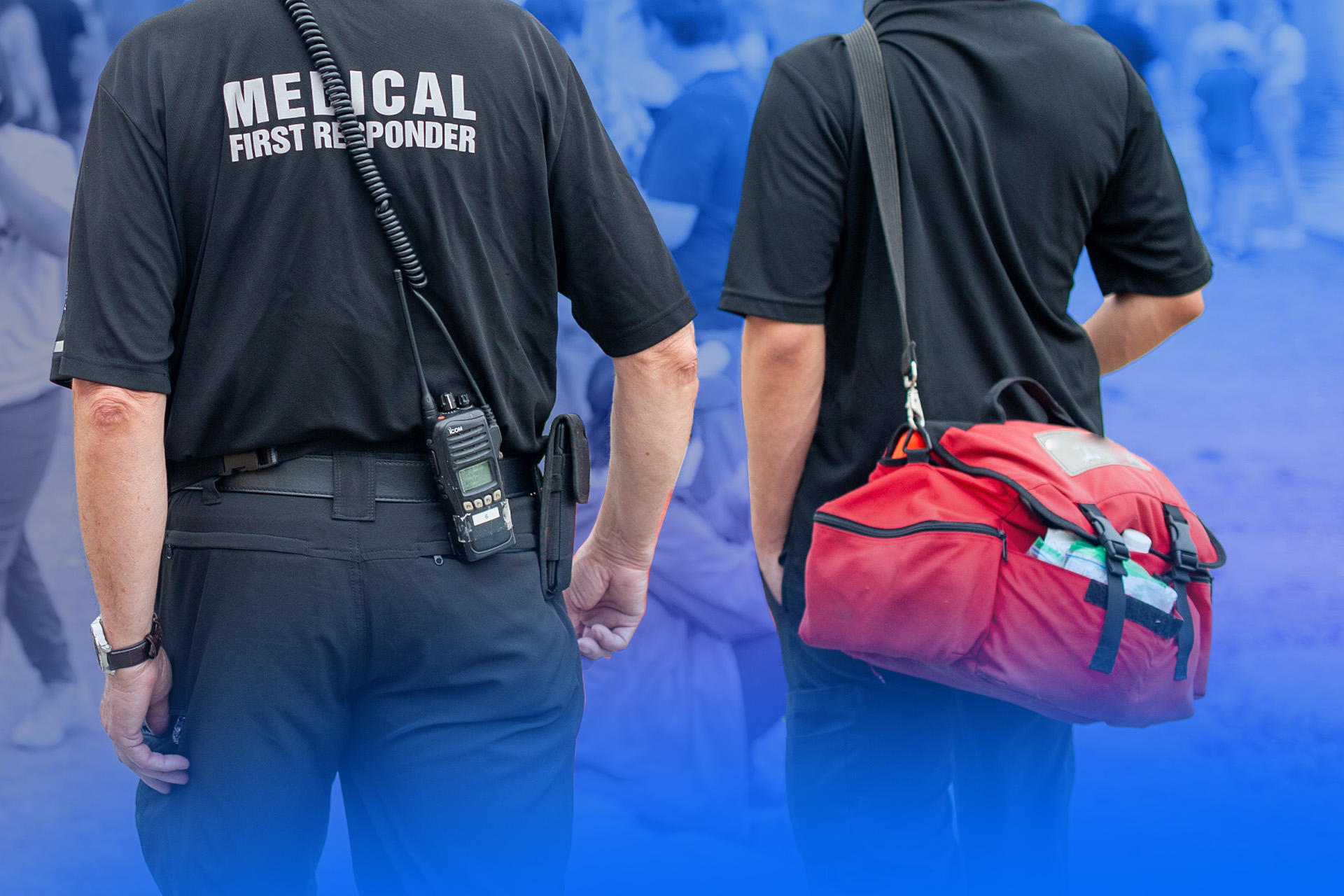Strengthening Your Church’s Disaster Relief Efforts with First Responders
December 4, 2023 |
Disasters are all around—tornadoes, hurricanes, flooding, wildfires, tragedies in local communities. But some among your congregation are first on the scene, boldly looking at those dangers daily and reaching out a helping hand. First responders—firefighters, paramedics, dispatch, police officers, and medical staff—are an integral part of your local community. And when it comes to disaster prevention and relief, they’re the people you’ll want to turn to.
First responders have the courage, skills, and experience to help others when they need it most. And with proper training and collaboration, they can help your local church do the same. Here, we’re sharing how to connect and integrate first responders in your congregation so that you can create a stronger church disaster relief plan.
Identify First Responders in Your Congregation
You and fellow church staff members likely take time to get to know members of the congregation: greeting them on Sundays, shaking hands after the service ends, or connecting with them over email or text throughout the week.
Some members are likely first responders, and others may have family or close friends in those roles. These are crisis relief experts in your midst! But how can you easily and efficiently identify them?
Start by asking. Create a survey for your congregation to fill out, expressing your intention to form a crisis team and asking for involvement. The form could include questions like:
- Are you a first responder?
- Do you have special certifications (like CPR, EMT, nursing)?
- Would you be interested in joining our disaster response team?
If you send your questions through a form in Pushpay’s ChMS or an in-app poll, those who respond positively or provide their certifications can be automatically added to a group focused on disaster relief planning. Now, you’ve streamlined the administrative part of this process and ensured everyone who wants to contribute can do so efficiently.
You may need to send out your forms or interactive polls more than once. As you continue to ask for help from your congregation members, it’s important to give, not just receive. Create an environment where they feel recognized and appreciated by acknowledging and honoring first responders during a church service or hosting an appreciation event for them. You could even introduce a “First Responders Feature” in your weekly newsletter or social media, showcasing the brave men and women who protect and support your local community. Whatever avenue you choose, the heart should be to show your gratitude and make space for connection.
4 Steps to Integrate First Responders for Church Crisis Management
- Begin the Conversation: Once you’ve identified your first responders, it’s time to start talking. Discuss their potential involvement in the disaster relief plan and how their skills and experiences can help to serve the community during times of crisis.
- Collaboration Opportunities: Explore various options for collaboration. Your first responders could directly join your church’s disaster relief team, provide training to staff members, or share insights to improve your existing disaster plan.
- Clarify Expectations: Have first responders clearly outline what their involvement would look like, including roles, tasks, and time commitments. Transparency and clarity at this stage ensure everyone is on the same page.
- Consider Availability: First responders often have demanding, unpredictable schedules. Be aware of the potential availability constraints of first responders and try to accommodate these as best as you can.
Maintaining an Ongoing Relationship with First Responders
As you ask for insight and support from your first responders, it’s important to think about their perspective during a disaster as well. First responders never know what a day on the job will look like. Their work can mean close encounters with danger, chaos, and tragedy daily. Their duties, although essential to the entire community, are strenuous and, over time, put them at an increased risk of trauma.
These helpers need help, encouragement, and assistance, too. A 2017 study by the University of Phoenix found that:
- 51% of first responders report participating in pre-trauma mental health training
- 80% of firefighters report being exposed to a traumatic event
- Over 90% of police and EMTs report exposure to trauma
- 49% of first responders were offered “Psychological First Aid” after traumatic events
- 85% of first responders experienced symptoms related to mental health issues
As a church, it’s important to not only support first responders while you plan and implement your disaster relief efforts. They deserve an ongoing relationship with your church. One that pours into them, supports them, connects them to the community, and regularly checks on their well-being.
But the relationship and ongoing care for first responders doesn’t end with them. Their families also face significant challenges, with long shifts, odd hours, and an ever-present concern about their loved ones being in danger. These pressures can take a toll on each member of the family and the family as a whole, straining marriages and parent-child relationships alike.
For your church, an ongoing relationship with first responders could include support like counseling services or family events for them to connect with others who understand their unique situations.
Overall, engaging and continuing your relationship with first responders is crucial to your church. Their insights and connection to the community can help you better serve your entire city, and they can benefit from the support from the Church.
Getting Crisis Ready
Community engagement and disaster response are a collective effort, and first responders play a vital role in both. By providing the resources, support, and recognition they deserve, churches can effectively utilize their skills and experience to serve their local communities during times of crisis. Although they may not be able to anticipate when or which disaster will strike, everyone can take manageable steps to be prepared for those moments of crisis.
Explore more resources, strategies, and inspiration that can guide you and your church members through troubled times with our Pastor’s Guide: How To Lead Through Crisis.
Leading Through Crisis
7 Strategies to lead your church through any crisis.

Featured Content
You May Also Like
